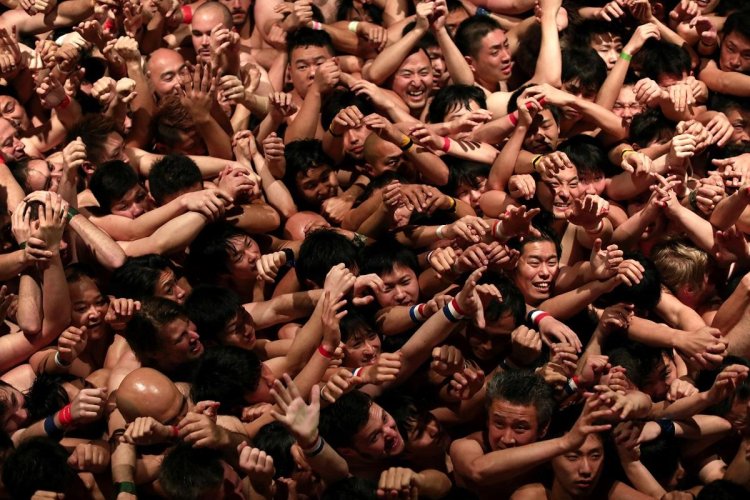End of Centuries-old Ritual

A steam of sweat rose as hundreds of naked men tousled over a bag of wooden talismans, performing a dramatic end to a thousand-year-old ritual in Japan that took place for the last time.
Their passionate chants of "jasso, joyasa" (meaning "evil, be gone") echoed through a cedar forest of northern Japan's Iwate region, where the secluded Kokuseki Temple has decided to end the popular annual rite.
Organizing the event, which draws hundreds of participants and thousands of tourists every year, has become a heavy burden for the aging local faithful, who find it hard to keep up with the rigors of the ritual.
The "Sominsai" festival, regarded as one of the strangest festivals in Japan, is the latest tradition impacted by the country's aging population crisis that has hit rural communities hard.
Japan's society has aged more rapidly than most other countries'. The trend has forced countless schools, shops and services to close, particularly in small or rural communities.
Kokuseki Temple's Sominsai festival used to take place from the seventh day of Lunar New Year through to the following morning.
As the festival reached its climax, hundreds of men packed inside the wooden temple shouting, chanting and aggressively jostling over a bag of talismans.
Other temples across Japan continue to host similar festivals where men wear loincloths and bathe in freezing water or fight over talismans.
Some festivals are adjusting their rules in line with changing demographics and social norms so that they can continue to exist -- such as letting women take part in previously male-only ceremonies.
From next year, Kokuseki Temple will replace the festival with prayer ceremonies and other ways to continue its spiritual practices.















